 Bournemouth University Dementia Institute (BUDI) was represented at the Alzheimer’s care show held at the Olympia in London on Friday 16th and Saturday 17th May 2014. This is a large event at which organisations and businesses showcase what they offer for people with dementia and those who support them. Dr Fiona Kelly, Dr Rick Fischer and Clare Cutler were kept busy at their stand, made distinctive by its brightly coloured banners and tulips. Delegates to our stand heard about the training and awareness work we do, our research, particularly into creating sustainable dementia friendly communities and our consultancy, including advising on dementia friendly design. Dr Kelly’s presentation on Achieving Excellence in Dementia Care stimulated interest both in the topic and in the work we do at BUDI to promote good practice.
Bournemouth University Dementia Institute (BUDI) was represented at the Alzheimer’s care show held at the Olympia in London on Friday 16th and Saturday 17th May 2014. This is a large event at which organisations and businesses showcase what they offer for people with dementia and those who support them. Dr Fiona Kelly, Dr Rick Fischer and Clare Cutler were kept busy at their stand, made distinctive by its brightly coloured banners and tulips. Delegates to our stand heard about the training and awareness work we do, our research, particularly into creating sustainable dementia friendly communities and our consultancy, including advising on dementia friendly design. Dr Kelly’s presentation on Achieving Excellence in Dementia Care stimulated interest both in the topic and in the work we do at BUDI to promote good practice.
Monthly Archives / May 2014
BUDI’s 2014 Open Pubilc Meeting
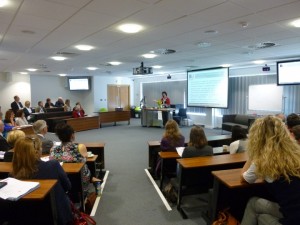 Bournemouth University Dementia Institute (BUDI) held its third open meeting at the university on 14th May, with this year’s theme being dementia friendly environments. The day was well attended by practitioners, family carers, the general public and people with dementia. It started with a lovely buffet lunch sponsored by Alzheimer Research UK, providing an opportunity for delegates to network and to browse the information stands hosted by themselves and BUDI Ph.D. students. The open meeting was formally opened by Professor Gail Thomas who praised the innovative work being carried out by the BUDI team. Delegates then heard presentations from Dr Fiona Kelly on dementia friendly design, Dr Jan Wiener on the use of eye tracking technology to explore navigation skills and difficulties, Kathrin Büter on using computer technology to support dementia friendly design in hospitals. This session closed with a presentation by architect Niall McLaughlin on his work with communities and older people to design care homes that meet everyone’s needs and are inspirational, therapeutic spaces. The final part of the day involved a question and answer session where delegates and presenters discussed some of the issues raised during the day including how to ensure that the concept of good design filters down to those commissioning, designing and using buildings that people with dementia also use. This successful event is sure to have got people thinking and sharing some of what they heard and we look forward to holding similar events in the future.
Bournemouth University Dementia Institute (BUDI) held its third open meeting at the university on 14th May, with this year’s theme being dementia friendly environments. The day was well attended by practitioners, family carers, the general public and people with dementia. It started with a lovely buffet lunch sponsored by Alzheimer Research UK, providing an opportunity for delegates to network and to browse the information stands hosted by themselves and BUDI Ph.D. students. The open meeting was formally opened by Professor Gail Thomas who praised the innovative work being carried out by the BUDI team. Delegates then heard presentations from Dr Fiona Kelly on dementia friendly design, Dr Jan Wiener on the use of eye tracking technology to explore navigation skills and difficulties, Kathrin Büter on using computer technology to support dementia friendly design in hospitals. This session closed with a presentation by architect Niall McLaughlin on his work with communities and older people to design care homes that meet everyone’s needs and are inspirational, therapeutic spaces. The final part of the day involved a question and answer session where delegates and presenters discussed some of the issues raised during the day including how to ensure that the concept of good design filters down to those commissioning, designing and using buildings that people with dementia also use. This successful event is sure to have got people thinking and sharing some of what they heard and we look forward to holding similar events in the future.
Übersetzen: Translation of the MGI in German
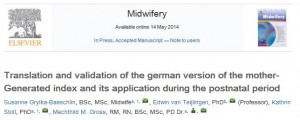
The Mother-Generated Index (MGI) is a validated tool to assess postnatal quality of life. It was originally designed and tested by Dr. Andrew Symon (http://nursingmidwifery.dundee.ac.uk/staff-member/dr-andrew-symon) at the University of Dundee. This instrument is usually administered several weeks or months after birth and correlates with indices of postpartum mood states and physical complaints. The instrument had not been translated into German before or validated for use among German-speaking women, nor have the results of the tool been assessed specifically for the administration directly after birth. Our recent paper (Susanne Grylka-Baeschlin, Edwin van Teijlingen, Kathrin Stoll and Mechthild Gross) in Midwifery describes the systematic translation process of the MGI into German and to assess the convergent validity of the German version of the instrument directly after birth and seven weeks postpartum
Susanne Grylka-Baeschlin, as part of a European COST Action, has spent time at Bournemouth University’s Centre for Midwifery, Maternal and Perinatal Health. Susanne Grylka-Bäschlin is a Swiss midwife based at the Hannover Medical School, Germany, who studies cultural differences in postnatal quality of life among German-speaking women in Switzerland and Germany.
Prof. Edwin van Teijlingen
CMMPH
Foot Lab: Call for Volunteers
 How unique is a human footprint? What is the variability in a person’s footprint? How do human footprints vary with body mass?
How unique is a human footprint? What is the variability in a person’s footprint? How do human footprints vary with body mass?
These are just some of the questions that Professor Matthew Bennett is currently exploring and needs volunteers to help with his research.
He is looking for three types of volunteer:
- Any adult – staff or student – who would be prepared to walk barefoot in a tray of sand leaving a dozen footprints and have their weight, height and age recorded. Some of you may remember doing this for a previous experiment back in 2007 and are encouraged to take part again. It takes no more than ten minutes and all the data, including digital scans or your footprints, are stored anonymously and cannot be traced back to you.
- Any adult – staff or student – who is prepared to donate about an hour of their time to leave multiple barefoot tracks in the sand tray. We are looking for at least a hundred tracks per individual and this will involve you walking up and down the sand tray multiple times while we scan your tracks.
- Any children accompanied by their parents (staff or student) of any age, from those that have just learnt to walk, to those that are approaching 17 years old. Some parents will have already seen that the Talbot Campus Nursery is involved and their children may be participating via that route.
The experiments have full ethical clearance from BU and you will receive full particulars and be asked to sign a consent form for yourself and for your children should they wish to get involved. All the data will be held anonymously and no individual will be identifiable from their data. The data will only be used to generate scientific results and publications.
The Foot Lab will be open to the public as part of the Festival of Learning 2014 on the 9 and 10 June, but the lab is open for BU staff and students from 27 May to 20 June. It is located on the Talbot Campus in in CAG01a. Email Matthew Bennett to book a time for yourself, a group of colleagues, or for you and your children to come in.
Most times of the day (Monday to Friday) can be accommodated especially if you are bringing in children and may be able to open the Foot Lab for small groups at the weekend. For those studying or working on the campus the Foot Lab will normally open for two slots a day (Monday to Friday) between 10am and 11.30am and again in the afternoon between 3.30pm and 5pm.
SciTech postgraduate conference and poster presentation
Yesterday the postgraduate researchers in the Faculty of Science and Technology (SciTech) held their annual showcase of their research projects. For the applied sciences students this took the form of 15 minutes presentations and the design, engineering and computing students presented posters.
Former PhD student Kathryn Ross opened the presentations in the Lawrence Lecture Theatre and likened the process of studying for a doctorate to taking part in a 100 mile walk. Kathryn was an inspiration to her peers, showing how hard work and persistence can get results. Her own PhD project investigating the effects of sea-level rise on the avocet population in Poole Harbour yielded new and interesting findings about the birds’ diet.
The subsequent presentations were outstanding, covering a wide variety of topics including how parasites impact eco-systems, volunteer engagement, the process of ageing fish and the spread of the domestic chicken through Europe.
The posters were equally impressive, featuring rescue robots, intelligent call routing and lie detector technology among others.
The work of the Bournemouth University Dementia Institute (BUDI) postgraduate researchers was strongly represented, including a remarkable project looking at adapted home environments for people living with dementia.
It was wonderful to see the amazing research being carried out by BU’s postgraduate community, with the support of their dedicated supervisors. I have no doubt many of them will make valuable contributions to their field in the future.
And to any postgraduate researchers reading this… If you would like to share your research more widely via the BU website or other channels, please do email me. I’d love to help you with that. Additionally, if you are interested in taking part in any public engagement activity, we have some great opportunities including a tent at Camp Bestival. If you like to find out more please email our Public Engagement Manager Barry Squires.
‘A Land of Wine and Beauty’
A new Erasmus Fusion Investment Fund for staff mobility and networking was awarded to Dr Clive Hunt, Lead Academic – Design and Engineering, Faculty of Science and Technology. This follows a recent Erasmus partnership agreement between BU and the University of Applied Sciences (FHWS) in Schweinfurt, which is situated in Franconia, Germany – one of Europe’s oldest wine-growing regions and described as “a land of wine and beauty” by the Franconian Tourist Board.
As reported in a previous blog, the educational focus of FHWS is on design and engineering with a strong business/industrial focus. Clive’s visit to Germany, which has now taken place, was for a period of five days and included six hours of teaching as well as networking with two of FHWS’s industrial partners – ZF and Bosch and Siemens Home appliances (BSH). ZF is a worldwide leading supplier of dampers and clutches to the automotive industry and BSH’s product portfolio, which most will be familiar with, spans the spectrum of modern household appliances from stoves and ovens to small appliances like vacuum cleaners and coffee machines.
From visiting these companies, as well as talking to staff and students at the university, it became very clear that the mind-set of the German industrial sector was such that it saw an active role in undergraduate development. Prof Dr Marcus Schulz of FHWS, explained that the German industrial sector saw placement students as being particularly valuable in helping to solve business problems and he commented that “the university’s industrial partners actually compete for students!” Companies provide undergraduates with a five month placement opportunity as well as providing almost all students with a final year project (thesis).
To further the strategic partnership between our two institutions, Clive’s visit included meetings with the University’s Vice President, Prof Dr -Ing Bernhard Arndt as well as Prof Dr Uwe Sponholz, Dean of the Faculty of Business and Engineering. Developing joint research projects as well as encouraging student mobility between our two institutions is clearly a priority of FHWS and this aligns to the Faculty of Science and Technology’s (SciTech) own interest in furthering research and academic collaboration. From the beginning of next academic year FHWS will be delivering its courses in English which will provide SciTech students with an opportunity to study part of their degree abroad, providing units at BU can be aligned with theirs and delivery problems in terms of timing, etc., can be overcome.
One area in which FHWS is keen to develop its research is around creativity and ideas generation by engineers and their managers and the university has recently developed one of its teaching spaces into a “Creative Cube” for this purpose. This room consists of a 70” touch screen computer, webcams, video cameras, an ambience ceiling with 40,000 LED’s, iPads, notebooks, relaxing chairs, a device that changes the smell of the room as well as having walls that are magnetic and which can be written on. If there are any colleagues, here at BU, who would like to get involved in a joint pedagogical research project between ourselves and FWHS, that considers how learning is impacted upon by the environmental conditions of a teaching space then please get in touch with Clive (chunt@bournemouth.ac.uk).
IT as a Utility Community conference
![]() As part of the community, BUCSU is supporting Southampton University with this UK network.
As part of the community, BUCSU is supporting Southampton University with this UK network.
IT as aUtility: Network+ community conference
Thursday 19th – Friday 20th June 2014
This will be a two-day presentation and reflection on the achievements so far and the future plans of the RCUK-funded IT as a Utility Network+. The event will be an opportunity to further examine the role of IT utilities in the digital economy both now and in the future.
If you are interested in booking onto this event, please book your place via Eventbrite.
In addition to this, BU will be hosting a ‘Data as a utility and analytics as a service’ workshop at the Executive Business Centre on Monday 9th June from 12pm – 6pm.
Collaboration between BU and China!
Last week Dr Biao Zeng organised a seminar with guest speaker, Jianfang Cheng, Deputy Chief of the Zhongguancun Science Park London Office. Zhongguancun Science Park is a consortium of hi-tech industry and is often referred to as China’s ‘Silicon Valley’.
Dr Zeng invited colleagues and students from across the Institution to attend this seminar and find out more about how we can build a partnership with various companies who are based at the Park. Ms Cheng was keen to find out about the key areas of research at BU and to explore whether there were research and collaboration opportunities between BU and Zhongguancun Science Park.
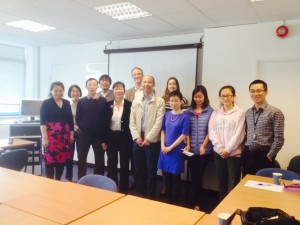
Rachel Clarke – KTP Officer
Money Available for Open Access Publishing!
 Back in April 2011 we launched the BU Open Access Publication Fund. This is a dedicated central budget that has been launched in response to, and in support of, developments in research communication and publication trends. The fund is also to support research in complying with some of the major funding bodies who have introduced open access publishing requirements as a condition of their grants.
Back in April 2011 we launched the BU Open Access Publication Fund. This is a dedicated central budget that has been launched in response to, and in support of, developments in research communication and publication trends. The fund is also to support research in complying with some of the major funding bodies who have introduced open access publishing requirements as a condition of their grants.
The fund is available for use by any BU author ready to submit a completed article for publication who wishes to make their output freely and openly accessible.
If you are interested in applying to the fund then you need to email Pengpeng Hatch in RKEO with the following information:
- Name of the open access publication
- Confirmation this will be a peer reviewed paper
- A short justification (1 paragraph) of why it is beneficial for your research to be published in this particular open access publication
- The cost of the open access publication
- Likely publication date
- Likely REF Unit of Assessment (UOA)
- A copy of the paper
If you have any questions about the Fund then please direct them to Shelly via email.
Further information: BU Open Access Fund policy
PGR Development Fund Activity Report by Gail Ollis, SciTech
 ACCU 2014
ACCU 2014
(ACCU 2014: The conference for developers. Bristol, April 2014. accu.org/index.php/conferences)
Introduction
ACCU is an organisation for software developers which champions professionalism in programming. Its members and conference delegates are exactly the kind of audience my research must reach to be relevant in influencing professional software development practice.
Funding from the Graduate School enabled me to attend the ACCU annual conference, an ideal place to discuss my research findings and their practical applications. I reached an even larger audience than I had hoped: to date, more than 50 have attended my presentations and I have talked to many others informally. Speaking for ACCU also generated an unforeseen bonus: a new student placement relationship.
Engagement and impact
In my session entitled “What programmers want” I presented themes that have emerged, in my research interviews, about how actions taken by peers make a software developer’s job harder or easier. I also included an audience activity to let people try for themselves a card-sorting technique I developed for use in the interviews.
The ‘buzz’ in the room during the activity was extraordinary; everyone engaged with discussing just how much they are affected by the various good or bad peer behaviours listed on the cards. In my research I used the cards to prompt individual participants to talk about a wide range of activities that their job involves. It was evident from the audience response that the cards also function very well as a catalyst for group discussion; several people have asked for a copy to use in this way at their workplace.
Research project benefits
The session finished with a discussion and the audience was keen to contribute by sharing thoughts and questions inspired by my presentation and the activity. It is encouraging to find that my work is meaningful, interesting and useful to the people whose profession it concerns. Their feedback will play an important role in shaping how the research proceeds from here.
Personal development
Being a speaker at ACCU 2014 also led to invitations to speak to the local ACCU groups in Oxford (February 2014) and Bath/Bristol (planned for June 2014). Presenting the material a second time has been a fantastic opportunity to refine my presentation skills by exploring different approaches to the same material.
Other benefits
As a direct consequence of the Oxford talk, a new student placement relationship has been set up between BU’s computing department and a company in Abingdon.
Conclusion
This was a great opportunity to share my research with the professional community. Many software developers are now aware of this work at BU and find it relevant and useful to their workplace. It is a tremendous encouragement to have established that my research makes sense to the people it is for.
Photos – courtesy of Anna-Jayne Metcalfe, @annajayne
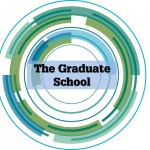
Getting on Board with the Bournemouth and Poole Sustainable Food Cities Partnership:

Bournemouth and Poole Borough Councils were recently successful in a collaborative bid to become one of only six UK cities, to receive matched funding and support from the UK Sustainable Food Cities Network, over a 3 year period. BU is one of the funding partners; a number of BU staff are already contributing to what is an exciting development for the region.
The Sustainable Food Cities Network is an alliance of public, private and third sector organisations committed to promoting sustainable food. The Network comprising the Soil Association, Food Matters and Sustain aims to help people and places to share challenges, explore practical solutions and develop best practice in all aspects of sustainable food (Sustainable Food Cities 2014).
There are now opportunities for others to be involved. We have identified a number of potential project areas (at undergraduate and Master’s level) where students in particular, might wish to participate and where further research would support the work of the Partnership. Potential topic areas relate to the broad range of aspects related to sustainable food and drink including: the impacts of climate change, food security and food waste, food poverty, health and nutrition, well-being, food tourism, Fairtrade, community growing, the conversion of grey to green spaces, local food production, food marketing and distribution.

Information Session: If you are interested in finding out more, an information session on the Partnership and the student project opportunities will be held on Thursday June 19th from 2.00 – 3.30 pm in TAG31.
A more detailed list of the potential projects is available upon request. If you would like a copy of the list or you are unable to attend the information session and would like to discuss any of these potential projects or other ways that BU students could assist and be engaged with the Sustainable Food Cities Partnership, please contact one of the following BU staff and partnership members:
Dawn Birch – The Business School – dbirch@bournemouth.ac.uk
Chris Shiel – School of Applied Sciences – cshiel@bournemouth.ac.uk
Jill Quest – The Media School – jquest@bournemouth.ac.uk
GS Santander Mobility Activity Report by Jonny Branney – HSC
 BRITSPINE 2014
BRITSPINE 2014
Introduction
I was delighted to present the results of my PhD work in a presentation entitled “Does spinal manipulation change cervical inter-vertebral motion?” at BritSpine 2014. BritSpine is the largest and most prestigious spine research conference in the UK so it was a privilege to have had my abstract accepted for oral presentation. This provided the opportunity to experience presenting my work to some of the main spine researchers from around the world and promote myself as a researcher, and Bournemouth University.
Personal Development
I received valuable feedback on my presentation from the President of the Society for Back Pain research, and fielded audience questions from none less than the President of the British Association of Spine Surgeons, and the Chair of the United Kingdom Spine Societies Board who is Professor of Spinal Surgery, University of Oxford. My supervisor, who attended with me, was very pleased with how the presentation went and my competent answering of audience questions. This being my first large professional conference presentation, I feel much more confident in my presenting skills and in presenting at future conferences, an important part of being a researcher. The peer-review provided by this experience will also help as I finalise the writing-up of my thesis.
After finishing my presentation I was pleased to relax and enjoy the rest of the conference, attending presentations on the latest approaches to diagnosing and treating spinal problems. This allowed me to learn about (and critically evaluate) the methodologies used by other researchers, as well as staying up-to-date with developments in the spine research field.
Summary
The experience has been hugely worthwhile as I prepare to submit my thesis and embark on the next stage in my career. Many thanks to the Graduate School and Santander Universities for enabling me to attend BritSpine and gain this valuable experience.
Jonny Branney
PhD student, School of Health and Social Care
http://staffprofiles.bournemouth.ac.uk/display/jbranney
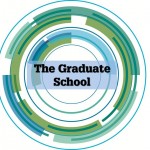

Research Professional – Sign up to the 8am Playbook
Many of you will know of Research Professional as a great source for funding opportunities, but that is not all that this service can provide. As well as funding, Research Professional has an extensive news section.
If you just want to keep up to date with all the latest news relevant to Higher Education, sign up for the 8am Playbook. This will allow you to ‘be in the know’ and will help you to keep up to date with hot topics which might turn into research opportunities. It will also enable you to be up to date when talking to colleagues or, as mentioned at this week’s Doctoral Supervision event, be ready to converse if you meet John Vinney in the lift!
In addi tion, if you have particular interests, your personal account with Research Professional allows you to sign up to newsletters focussing on, for example, European News and Research. Going further, you can set up your own news searches and manage your alerts to receive these weekly direct to your inbox.
tion, if you have particular interests, your personal account with Research Professional allows you to sign up to newsletters focussing on, for example, European News and Research. Going further, you can set up your own news searches and manage your alerts to receive these weekly direct to your inbox.
To find out more, go to our recent post on help and training sessions.
Facebook User Interface to suit Saudi Arabian culture
We would like to invite you to the next research seminar of the Creative Technology Research Centre that will be delivered by Hana Almakky.
Title: Facebook User Interface to suit Saudi Arabian culture
Time: 2:00PM-3:00PM
Date: Wednesday 28th May 2014
Room: P302 (Poole House, Talbot Campus)
Abstract: Social media has continued growing in Saudi Arabia. Millions of businesses and trades are now using social media for entertainment, advertisement and promoting themselves internationally. Social networking sites, like Facebook, Twitter, YouTube etc., have gained huge popularity at personal as well as professional scale. Therefore, work is being done to evolve the modes of communication over these platforms, extensively. My research explores the effect of Saudi cultures on the design of social media site of Facebook. The expected outcome of this research will be a theoretical framework that guides the design of a user interface for Facebook to meet the Saudi’s expectations.
We hope to see you there,
Dr. David John
Media School Academics Join EU CyberPark Project
![]() The EU COST funded CyberPark project brings together participants from 21 countries to explore how ICT can help attract more users to engage with public spaces more efficiently, enhancing their health and wellbeing. With the emergence of social media, wearable technologies and devices such as Google Glass, a future where technology is embedded in the environment and where landscapes respond to the people who pass through them may no longer be just science fiction fantasy. The CyberPark project will explore how nature and the digital can be brought closer together, drawing on the expertise of urban planners, architects, anthropologists and researchers from the arts and humanities.
The EU COST funded CyberPark project brings together participants from 21 countries to explore how ICT can help attract more users to engage with public spaces more efficiently, enhancing their health and wellbeing. With the emergence of social media, wearable technologies and devices such as Google Glass, a future where technology is embedded in the environment and where landscapes respond to the people who pass through them may no longer be just science fiction fantasy. The CyberPark project will explore how nature and the digital can be brought closer together, drawing on the expertise of urban planners, architects, anthropologists and researchers from the arts and humanities.
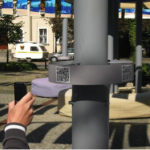
Bronwen Thomas, Sue Thomas and Sam Goodman from the Media School’s Centre for the Study of Journalism, Culture and Community will all be contributing to the four-year project from May 2014. Bronwen Thomas is Director of the Centre and an Associate Professor in the Media School. She has published widely on new media narratives and organized the Location-based Storytelling symposium here at BU in 2012. Sue Thomas is a Visiting Fellow in the Media School, and recently published a book on Technobiophilia (Bloomsbury, 2013) exploring the relationship between nature and cyberspace. She is currently developing ideas around digital well-being. Sam Goodman is Lecturer in Linguistics in the Media School, with research interests in Medical Humanities and literary representations of space, place and landscape.
You can read more about the project on Sue Thomas’s new Wired Well-being column for The Conversation at https://theconversation.com/cyberparks-will-be-intelligent-spaces-embedded-with-sensors-and-computers-26837
Full details of the COST action can be found at
http://www.cost.eu/domains_actions/tud/Actions/TU1306
Professor Barry Richards on ‘The Conversation’
A piece written by BU’s Professor Barry Richards was featured as a lead article on ‘The Conversation’ website.
Entitled ‘A hymn confirms that the FA Cup final is a matter of life and death’, the article explores the reasons why ‘Abide with Me’ has become the FA Cup anthem.
The Conversation is a website, sourcing news and views from the academic and research community and sharing it with the wider public.
Coffee and cakes…
Coffee and cakes will be available at the Research and Knowledge Exchange Office coffee morning this Thursday (22 May 2014), starting at 9.30am in the Retreat. This will be an informal opportunity for you to have a chat with various members of the R&KEO team. If you can’t make it this week, the next event will take place on 19 June in R303, Royal London House between 9am and 10am.
We also have coffee mornings arranged for the next academic year; the first event of 2014-15 will be in the Retreat on 30 October.
We look forward to seeing you on Thursday!

Dementia Awareness Week
This week is the designated UK Dementia awareness week. We kick started our contributions early with our 3rd annual public meeting on the 14 May focusing on Dementia Friendly Environments where we also gave a preview of our new video which we are launching this week as part of BUs commitment to raising awarenss about dementia – click here to view what local people with dementia and carers have said what it is like to live with dementia in Dorset:
We had a stand at the weekend at the London Annual Care Show aimed at the general public to raise awareness of dementia. We are also doing a cake sale today in the atrium all proceeds to the Alzheimer Society music groups which is in keeping with our current BSO project focusing on the power of music on the well-being of those with dementia – the BU Baking Club and BUDI team have made some scrummy looking cakes – I am sure they will go fast!












 BU attendance at third annual GCPHR meeting in June
BU attendance at third annual GCPHR meeting in June Interactive Tangible and Intangible Heritage Applications – BU student work featured in new book chapter
Interactive Tangible and Intangible Heritage Applications – BU student work featured in new book chapter Second NIHR MIHERC meeting in Bournemouth this week
Second NIHR MIHERC meeting in Bournemouth this week MSCA Postdoctoral Fellowships 2025 Call
MSCA Postdoctoral Fellowships 2025 Call ERC Advanced Grant 2025 Webinar
ERC Advanced Grant 2025 Webinar Horizon Europe Work Programme 2025 Published
Horizon Europe Work Programme 2025 Published Horizon Europe 2025 Work Programme pre-Published
Horizon Europe 2025 Work Programme pre-Published Update on UKRO services
Update on UKRO services European research project exploring use of ‘virtual twins’ to better manage metabolic associated fatty liver disease
European research project exploring use of ‘virtual twins’ to better manage metabolic associated fatty liver disease